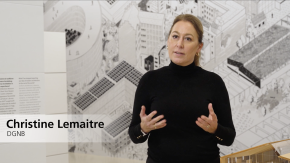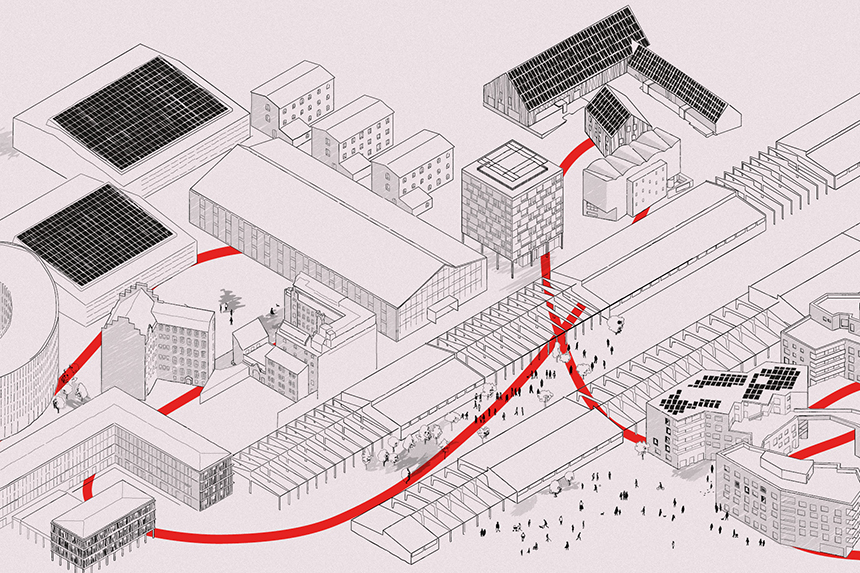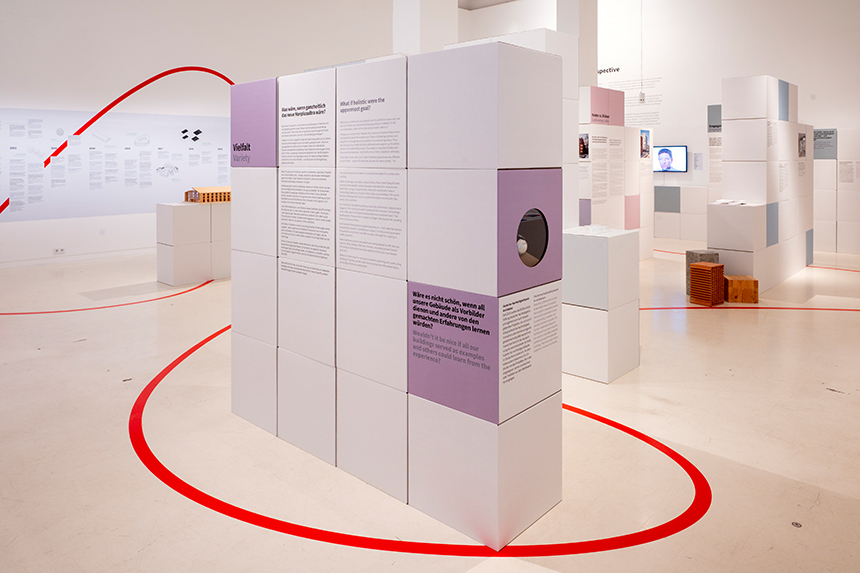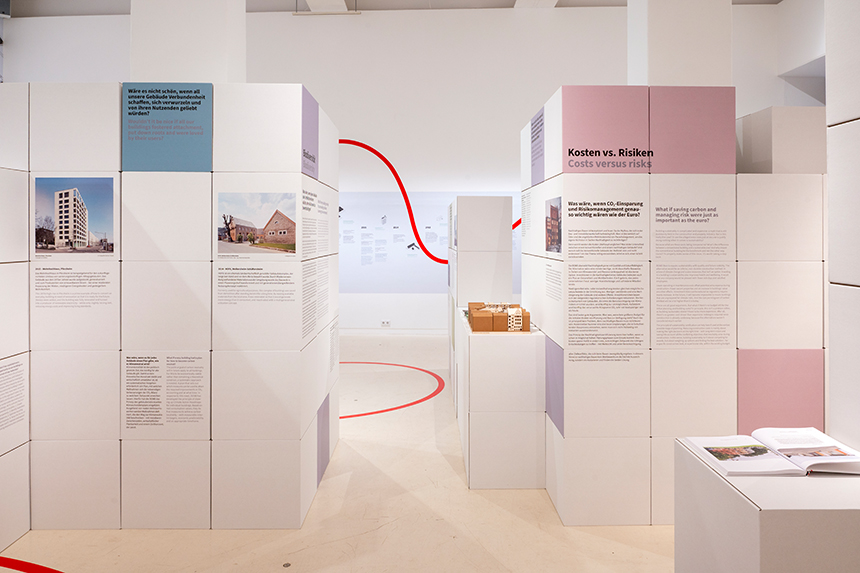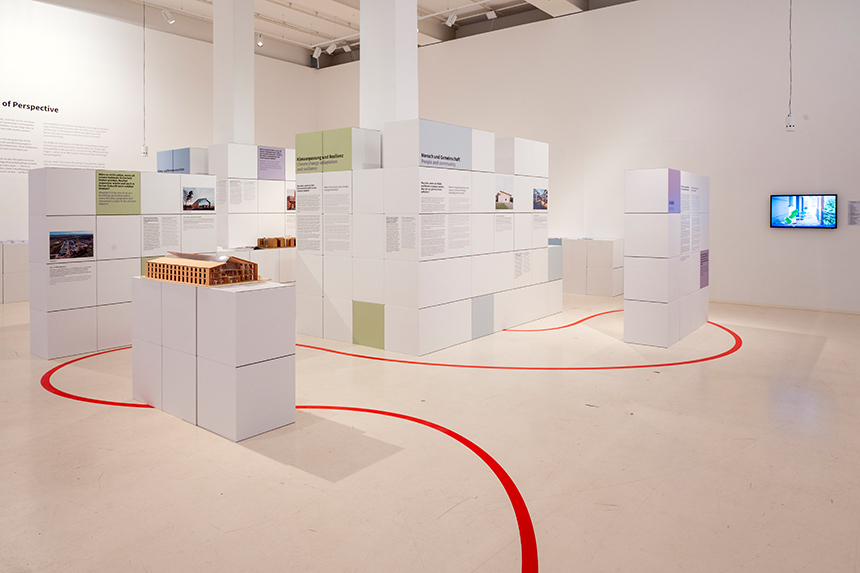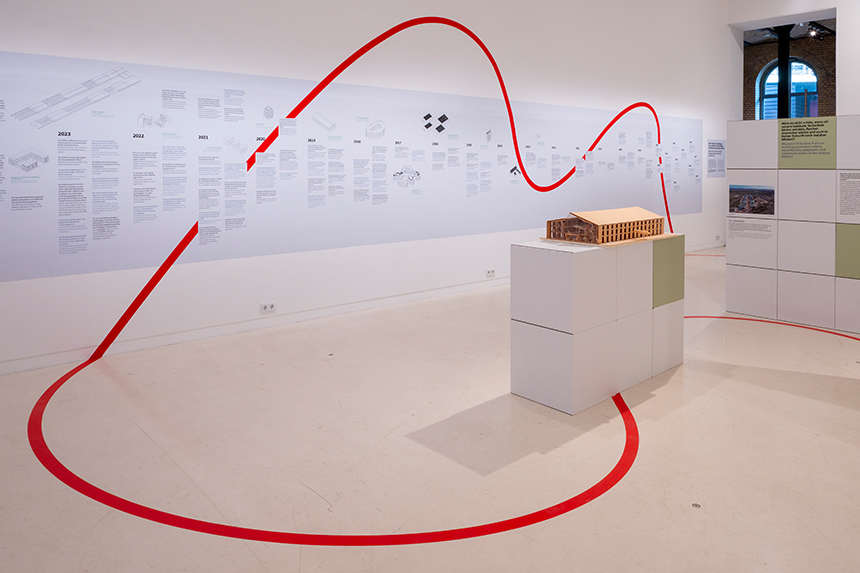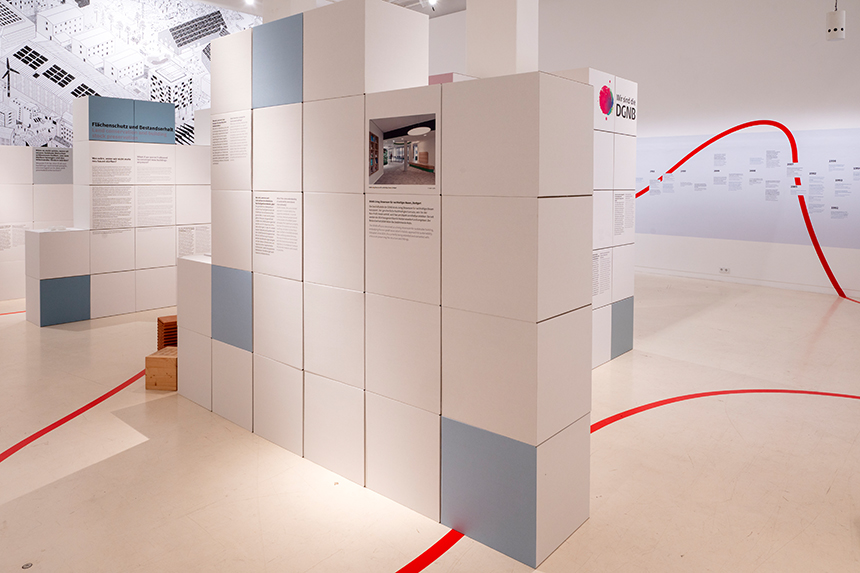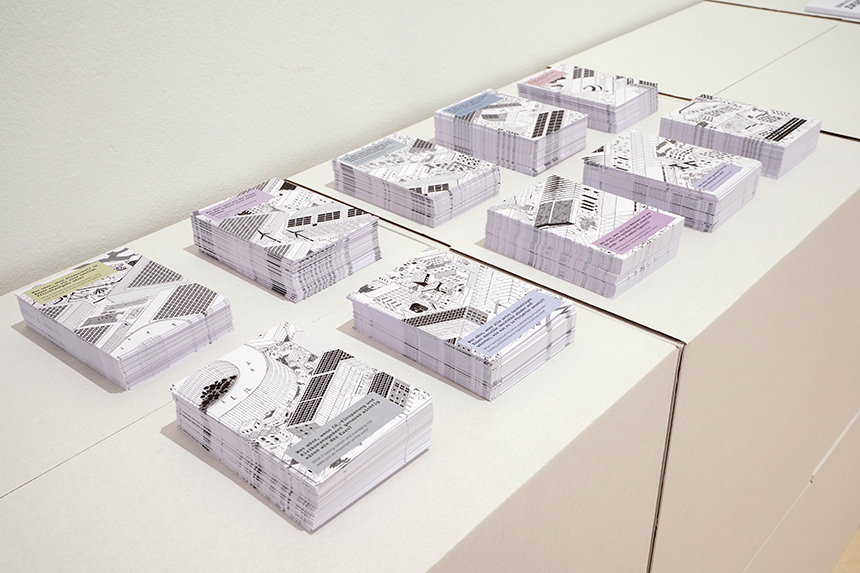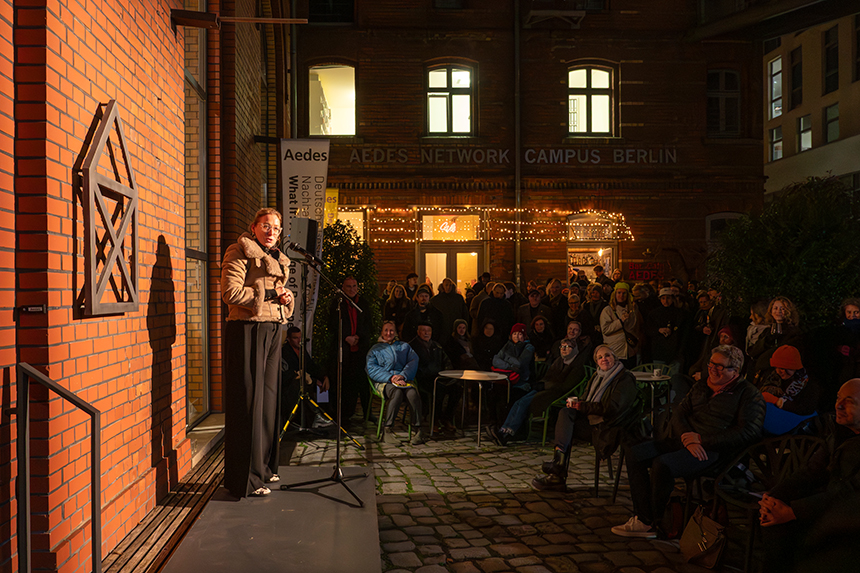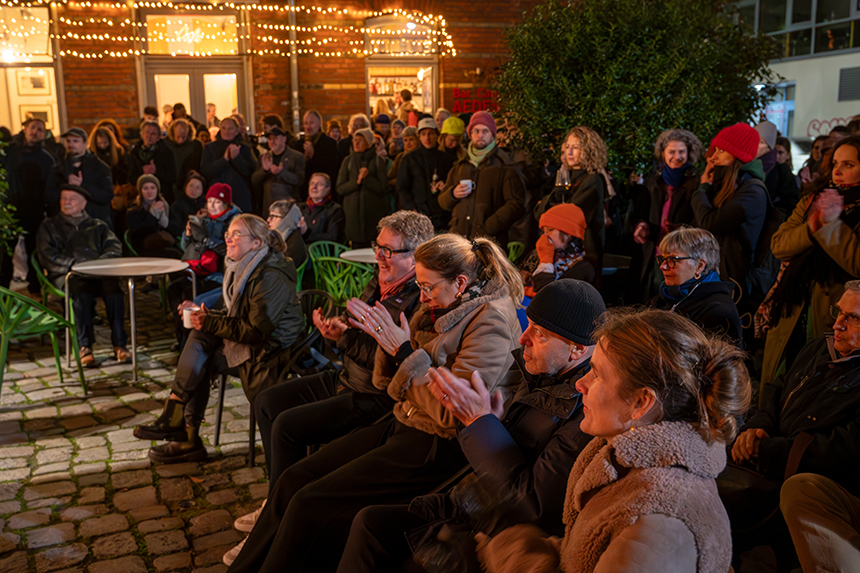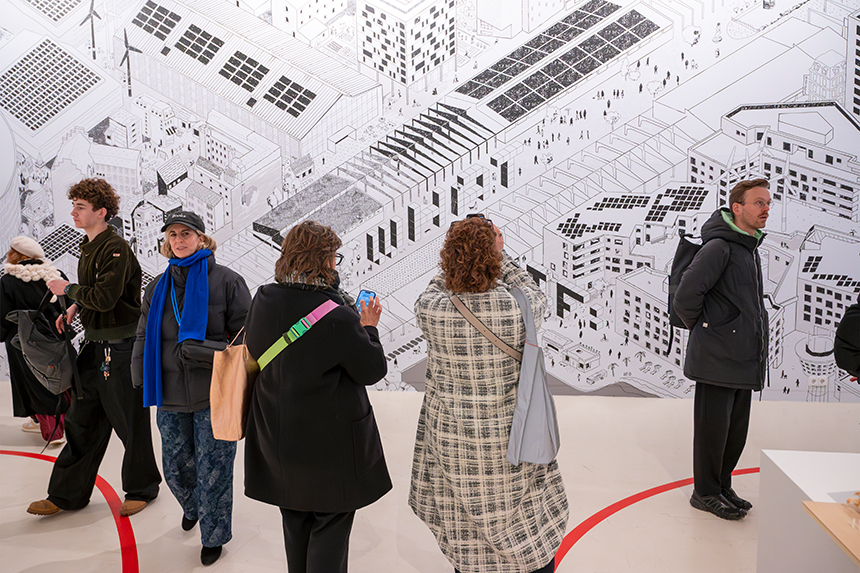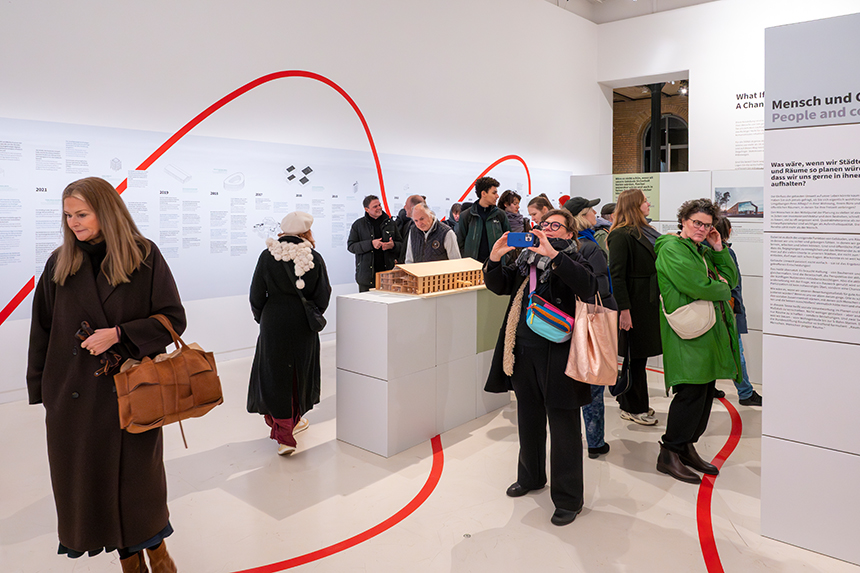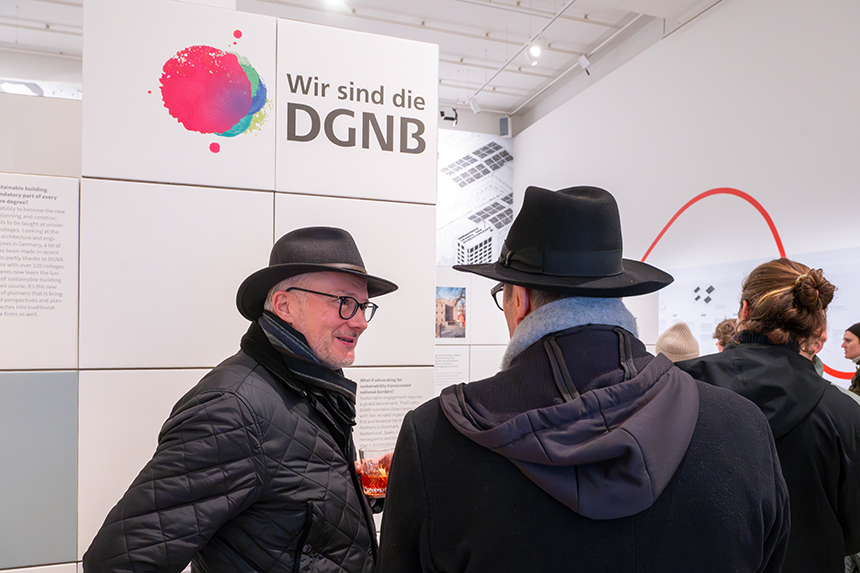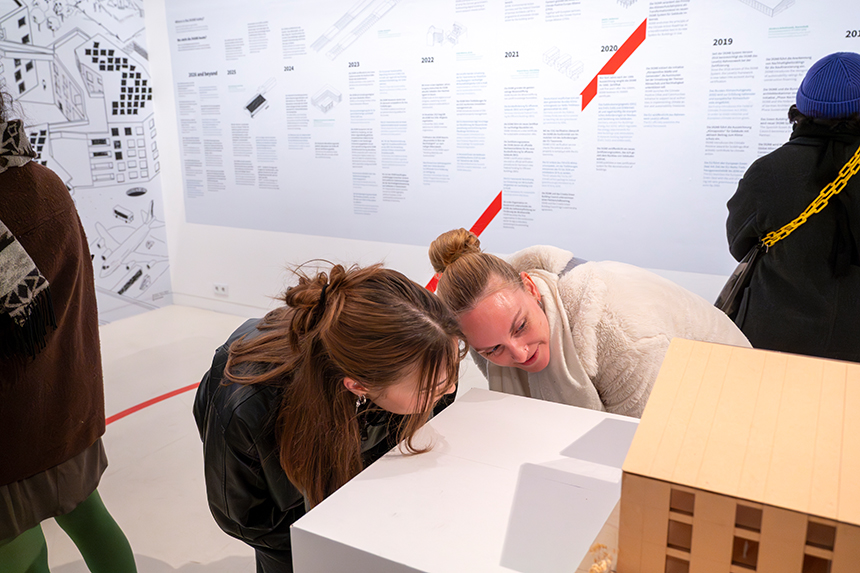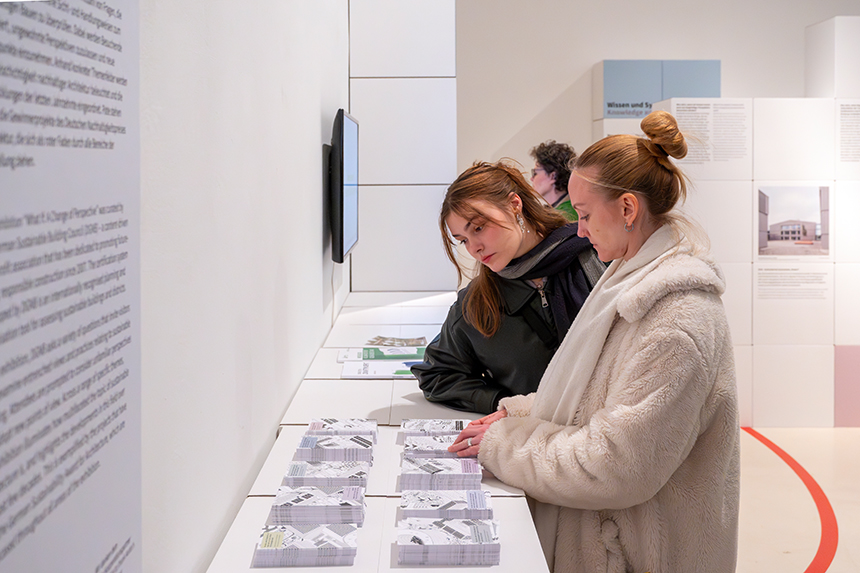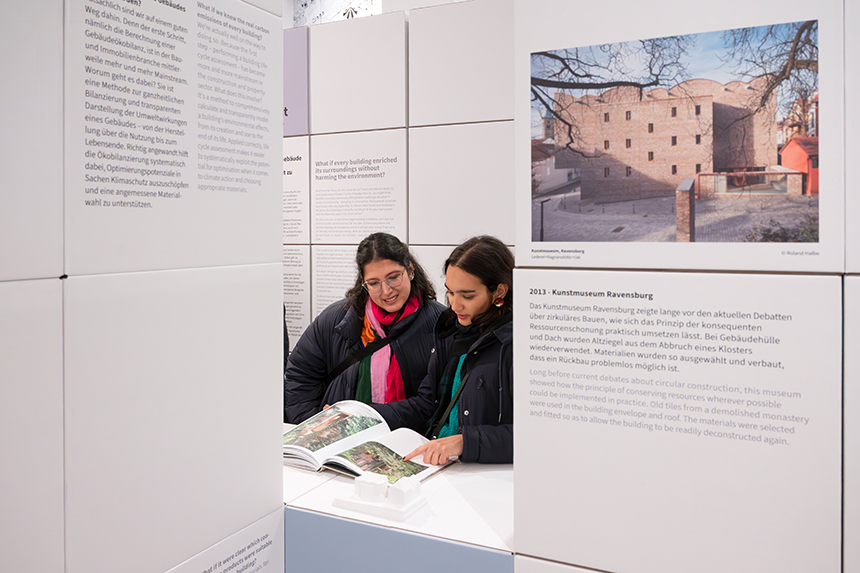What if we were no longer allowed to build new structures? Questions like this — and many others — are raised in the exhibition What If: A Change of Perspective by the German Sustainable Building Council (DGNB). The DGNB is a non-profit association based in Stuttgart that has been advocating for future-oriented and responsible building for 18 years. With the DGNB Certification System, it has developed an internationally recognised planning and optimisation tool for assessing sustainable buildings and districts. The exhibition invites visitors to question conventional ways of thinking and to rediscover the essence of sustainable architecture: buildings and districts that offer people a good home, remain affordable, and provide design-driven answers to the climate crisis. A central narrative traces the evolution of sustainable building, accompanied by six thematic sections and the award-winning projects of the German Sustainability Award for Architecture.

Winner of the German Sustainability Award for Architecture 2023: U-Halle Mannheim, Hütten & Paläste © BUGA 2023 gGmbH | Winner of the German Sustainability Award for Architecture 2019: Alnatura Campus Darmstadt, haascookzemmrich Studio2050 © Brigida Gonzalez
What if we were no longer allowed to build new structures? What if today’s climate were already three degrees warmer, or if we honestly asked ourselves how much space and comfort we truly need? Questions like these form the starting point of the exhibition What If: A Change of Perspective, curated by the German Sustainable Building Council (DGNB).
Visitors at Aedes are encouraged to question familiar patterns of thought and behaviour related to sustainable construction and to embrace new perspectives. Through six thematic areas, the exhibition explores the complexity of sustainable architecture and contextualises the developments of recent decades:
Climate and Resource Protection
What if climate protection in construction were more than just an obligatory task?
Buildings can be part of the solution when they are conceived to be resource-efficient, circular, and energy-generating. Those who consider the entire life cycle and balance potential conflicts of objectives can create truly sustainable buildings — without compromising architectural quality.
Climate Adaptation and Resilience
What if we finally took climate change seriously?
Buildings and cities will need to cope with new climatic conditions — including heat, heavy rainfall, and prolonged dry periods. Climate adaptation means planning ahead, not with more technology, but through intelligent design: shading, greenery, rainwater retention, and materials that cool rather than heat. This creates a built environment that continues to function well into the future.
Biodiversity
What if every building enriched its surroundings without harming the environment?
Buildings can create habitats — for both people and nature. With green roofs, planted façades, and thoughtfully designed outdoor spaces, architecture becomes part of a functioning ecosystem. Those who embrace this approach are rewarded with a more pleasant microclimate, improved quality of stay, and more resilient districts.
People and Community
What if we designed cities and spaces so that we enjoy spending time in them?
Architecture shapes how we live together — it can unite or divide. When human needs become the central measure again, places emerge that foster identity, encourage encounters, and include everyone. Social responsibility in construction means shaping relationships, not just spaces.
Land Conservation and Preservation of Existing Buildings
What if we could no longer build new structures?
Land is finite — and building on greenfield sites is becoming obsolete. Sustainable construction means rethinking what already exists: renovating, repurposing, and densifying rather than demolishing. Working with the existing stock preserves resources, strengthens architectural heritage, and assumes responsibility for a future-proof built environment.
Costs vs. Risks
What if CO₂ reduction and risk management were considered as important as the Euro?
Sustainable building is not a cost burden but an investment in quality and future viability. Holistic planning reduces operating and maintenance costs, increases building value, and mitigates risks. Saving on construction costs primarily means making the right decisions at the right time — with foresight and careful consideration of all the inevitable trade-offs in construction.
“We want to invite people to return to the core of sustainable architecture — coupled with the question of what makes good buildings and districts: places where people feel comfortable, that are affordable, and at the same time provide answers to the most pressing climate challenges,” explains Dr Christine Lemaitre, CEO of the DGNB, describing the conceptual approach of the exhibition. “It may sound simple, but it isn’t, because we have forgotten how to question habitual ways of acting. A change of perspective is needed, and that is what we aim to inspire in all our visitors.”
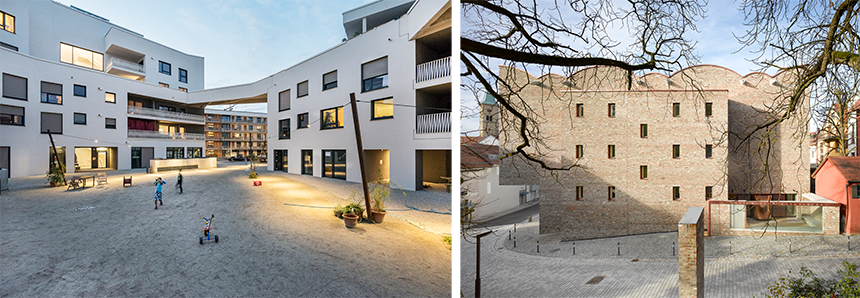
Winner of the German Sustainability Award for Architecture 2017: wagnisART Munich, bogevischs buero © Julia Knop, HH | Winner of the German Sustainability Award for Architecture 2013: Ravensburg Art Museum, LRO © Roland Halbe, Stuttgart
The Exhibition
What If: A Change of Perspective is a call to learn from past solutions rather than constantly reinventing the wheel. Exemplifying this are the previous award-winning projects of the German Sustainability Award for Architecture, which the DGNB has jointly awarded with the German Sustainability Award Foundation every year since 2013. In the exhibition, these projects are presented through models, photographs, and images, each assigned to one of the six thematic areas.
2013 KUNSTMUSEUM, Ravensburg Lederer+Ragnarsdóttir+Oei Stuttgart
2014 HOF8, Taubertal Architectural firm Rolf Klärle, Dipl.- Ing. freier Architekt BDA
2015 WOHNHOCHHAUS, Pforzheim Freivogel-Architekten
2016 Schmuttertal-Gymnasium Diedorf Hermann Kaufmann ZT GmbH & Florian Nagler Architekten GmbH ARGE „Diedorf"
2017 Gemeinschaftlich nachhaltig bauen – wagnisART, Munich ARGE bogevischs buero with SHAG Schindler Hable Architekten GbR
2018 Rathaus Freiburg Ingenhoven architects
2019 Alnatura Campus – Neubau der Alnatura Arbeitswelt haascookzemmrich STUDIO2050
2020 SKAIO, Heilbronn Kaden + Lager
2021 Einfach Bauen, Bad Aibling Florian Nagler Architekten
2022 Hotel Wilmina, Berlin Grüntuch Ernst Architekten
2023 U-Halle, Mannheim Hütten & Paläste
2024 Collegium Academicum, Heidelberg DGJ Architektur
2025 Multi-functional Hall, Ingerkingen Atelier Kaiser Shen
“Most of the projects we have awarded were ahead of their time, as they addressed issues from the broad spectrum of sustainable construction in exemplary ways — topics that, at the time of their planning, were far from being taken for granted,” says DGNB President Prof. Amandus Samsøe Sattler.
German Sustainable Building Council (DGNB)
Founded in 2007, the DGNB is today Europe’s largest network for sustainable construction, with over 2,800 member organisations. The mission of this content-driven association is to promote sustainability in the construction and real estate sectors and to embed it in the awareness of the general public. With the DGNB Certification System, the independent non-profit organisation has developed a planning and optimisation tool for assessing sustainable buildings and districts, helping to increase real sustainability in construction projects. Through its continuing education platform, the DGNB Academy, more than 11,000 people in over 60 countries have already been trained as experts in sustainable construction.
Aedes Catalogue
English, 10€
> Order here
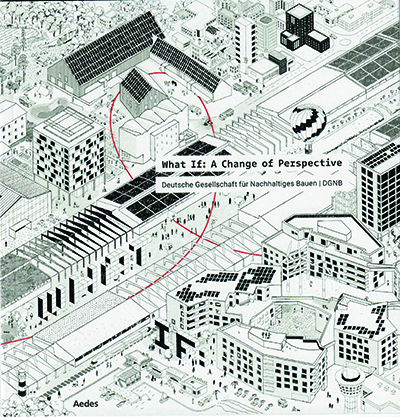
Sponsor
Ten Brinke

